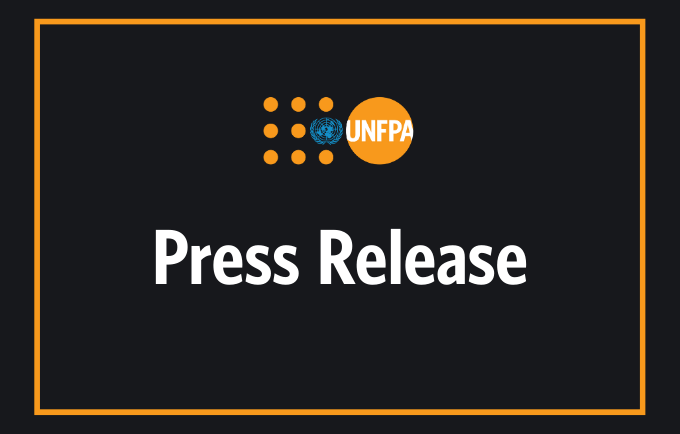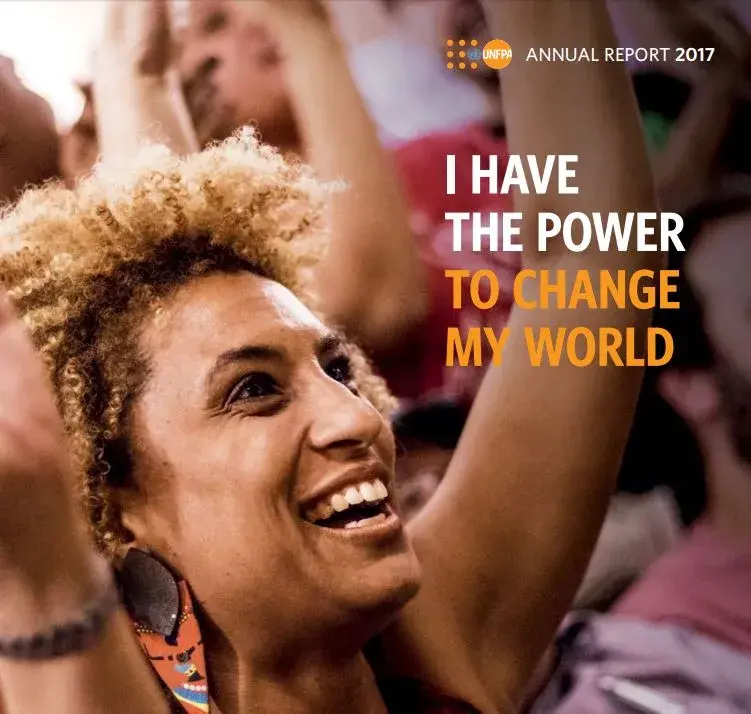NEW YORK, USA, 16 March 2020 - UNFPA, the United Nations sexual and reproductive health agency, expresses increasing concern about the women and girls trapped in the escalating humanitarian situation in Syria, especially in the north-west, where hostilities have caused mass displacement, human suffering and damage to civilian facilities. Women and girls continue to bear the brunt of this crisis, struggling to survive and care for traumatized children, as the conflict enters its 10th year. Some 960,000 people are estimated to have been displaced since December, 80 percent of whom are women and children, and approximately 25,000 of whom are currently pregnant.
Reproductive health services have been severely disrupted and the risk of gender-based violence is escalating, along with child marriage. Women and girls in Syria have repeatedly stated that they seldom feel safe due to the risk of violence, emphasizing the need for prevention services and the necessity of delivering consistent, quality services to survivors. UNFPA’s operations in north-west Syria have suffered as a result of the hostilities both directly and indirectly.
“The situation in Syria remains critical and we are deeply concerned about the dire conditions women and girls are having to face on a daily basis. Millions of women and girls continue to pay a high price for a conflict they had no role in creating,” said Dr. Natalia Kanem, Executive Director of UNFPA. “They will continue to depend on UNFPA and our partners to provide life-saving support until this crisis is over. The sexual and reproductive health and rights and the dignity and protection of women and girls are not negotiable”.
Since December 2019, UNFPA has had to close 7 service delivery points serving 13,000 people due to the escalated conflict and constrained humanitarian access. In the past couple of weeks alone, two health centers and two mobile clinics, serving around 6,000 people on a monthly basis, have had to cease operations, while three safe spaces that provide life-saving services to women and girls in the area have been suspended.
Midwives operating in Syria report that there has been a sharp increase in cases of early deliveries, miscarriages, and low-weight births. Pregnant women are asking for Caesarean deliveries out of fear of going into labor while on the move and without medical care. They have also noted that violence against women has become “routine.”
“When the guns fall silent, it does not mean the suffering of women and girls stops. The suffering and abuse that women and girls are exposed to is long-term,” said Luay Shabaneh, UNFPA’s Regional Director for the Arab States. “If a child at age 13 or 14 has been married, she will be exposed to suffering until the end of her life. Women’s issues should be a top priority in the immediate humanitarian response to the crisis to save lives, as well as in development work.”
As of December 2019, UNFPA and partners continued to support affected communities in Syria through 67 safe spaces where women and girls can find services, information, and psychosocial support; 15 youth centers; 29 emergency obstetric care facilities; 98 primary healthcare facilities and 97 mobile clinics.
“During all crises, whether it is the COVID-19 or any other health crisis, women often sacrifice their own health for the health of others. They give support to older people, to children, to the economic situation of their household. In doing so, they forget to take care of their own health. Therefore, their health should be a priority at all times,” added Shabaneh.
Over the past three years, UNFPA has reached 7.6 million affected Syrian people region-wide with life-saving health services, and prevention and response to gender-based violence. An overstretched health system and the continued risk of attacks against health-care facilities challenge the delivery of sexual and reproductive health services, and the risk of gender-based violence remains acute.
UNFPA estimates that there is a funding gap of $57 million for its programs in Syria and approximately 13 million people require assistance across the country, including 3.4 million women and girls of reproductive age.
###
UNFPA delivering a world where every pregnancy is wanted, every childbirth is safe, and every young person's potential is fulfilled.
Interviews and more information:
To request an interview with UNFPA’s Regional Director for the Arab States, Luay Shabaneh, please contact:
Samir Aldarabi: +201068484879; aldarabi@unfpa.org
For general inquiries, please contact:
Malene Arboe-Rasmussen: +1 201 253 6679; arboe-rasmussen@unfpa.org
Eddie Wright: +1 917 831 2074; ewright@unfpa.org




